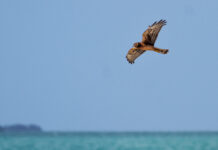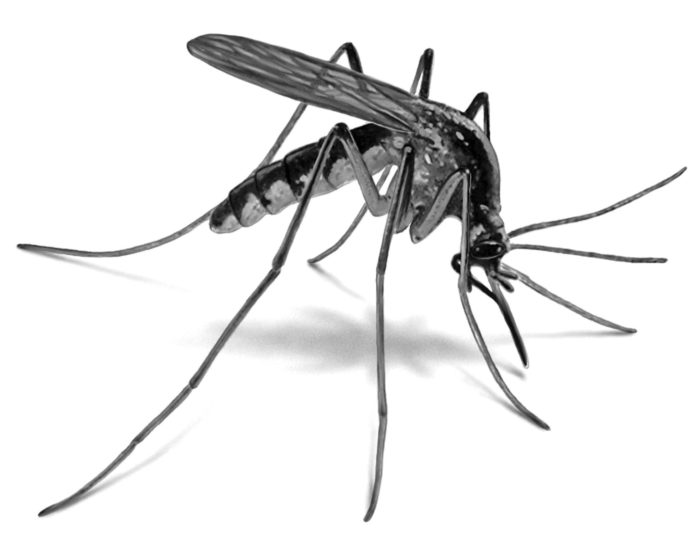British company introduces genetic mosquitos kill carries
Mosquito control district is hosting discussion about releasing genetically modified mosquitos to target the aedes aegypti population of the bug, a minority of mosquitos in the Keys that carry the deadly Dengue fever virus. Sterile male mosquitos would be released to mate with females, impregnating them with eggs that will not hatch.
Aedes aegypti, also known as the Yellow Fever mosquito, originated in Africa but now covers the globe. The Center for Disease Control reports one third of the world’s population is living in areas at risk for infection and the virus is a leading cause of illness and death in the tropics and subtropics, as many as 400 million people are infected yearly. In 2009 the Center for Disease Control identified an outbreak in Key West with 28 cases.
“The mosquito has killed more humans than any animal in history. It has killed more people than war and plagues,” said Hadyn Parry, CEO of the company pioneering the modified mosquitos to the Keys, Oxitec.
The latest meeting with Keys residents and Oxitec is part of a series of community workshops where residents can ask questions about the proposed project. The plan must be approved by the U.S. Food and Drug Administration before any mosquitoes are released in the Keys. Tuesday, April 21 is the next board of commissioners meeting in Marathon.
Oxitec has announced that Key Haven would be the location of the first, free test project in the Keys. Corporate representatives said the Key is sufficiently isolated and has an aedes aegypti population that can be targeted to gather sufficient data.
has done field trials in Brazil, the Cayman Islands and Malaysia. The corporation reports the population of aedes aegypti mosquito was reduced by 85 percent in those areas.
However, some Keys residents fear introducing the bugs may have a negative outcome.
“When you start messing around with natural systems, you do not know what is going to happen,” said Michael Welber of the Florida Keys Environmental Coalition,a group opposed the release of genetically modified mosquitoes.
He said there has not been a case of dengue in the Keys since 2010 and the mosquitos make up less than one percent of the population.
“It is like hitting a flea with a sledge hammer,” he said.
Director of Mosquito Control Michael Doyle said the mosquitos are more effective than spray or using larvacide. “The goal for the district is it will cost the same or less and be more effective than our current methods,” said Doyle.
Welber is concerned the genetic mosquitos will have an adverse effect on wildlife.
“You don’t want to birds and fish use them as a food source. The world is full of examples of how introducing a species can go wrong,” said Welber.
Oxitec reports it has done studies on lizards and there is no harmful effect from the bugs. They said they will be testing fish soon, but it is not of high concern because the aegypti are rarely by open water; they breed in stagnant water around homes.
What is Dengue Fever?
Dengue (DENG-gey) fever is a mosquito-borne disease that occurs in tropical and subtropical areas of the world. Mild dengue fever causes high fever, rash, and muscle and joint pain. A severe form of dengue fever, also called dengue hemorrhagic fever, can cause severe bleeding, a sudden drop in blood pressure (shock) and death.
Millions of cases of dengue infection occur worldwide each year. Dengue fever is most common in Southeast Asia and the western Pacific islands, but the disease has spread rapidly in Latin America and the Caribbean recently.
Researchers are working on dengue fever vaccines. For now, the best prevention is to reduce mosquito habitat in areas where dengue fever is common. —The Mayo Clinic






















